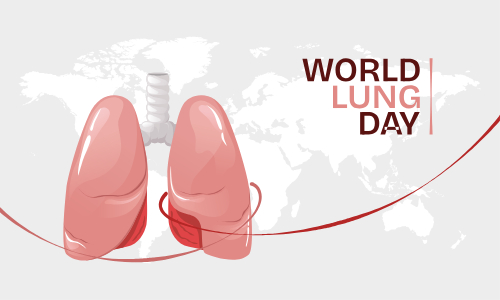
In observance of World Lung Day, marked September 25, the Forum of International Respiratory Societies (FIRS) calls on global leaders “to intensify efforts to combat air pollution, a leading cause of lung disease and death worldwide.”
This year’s theme, “Clean Air and Healthy Lungs for All,” highlights the link between air quality and lung health because “toxic air is universal threat,” and exposure can shorten lives, damage lungs, exacerbate asthma, and lead to chronic respiratory diseases, World Lung Day organizers explained. For example, 7 million deaths each year are attributed to air pollution-related illnesses like COPD, lung cancer, and respiratory infections, according to the announcement.
FIRS officials, who organize the annual observance of World Lung Day, emphasized that 99% of the global population breathes air that that does not meet air quality standards set by the World Health Organization, with disproportionate impacts on people living in low- and middle-income countries.
“Rising air pollution and ground-level ozone, linked to greenhouse gas emissions, are diminishing lung function, increasing hospitalizations for respiratory diseases, and elevating the risk of lung cancer,” M. Patricia Rivera MD, president of FIRS and immediate past-president of the American Thoracic Society, said in a statement. “We must intensify efforts to reduce greenhouse gas emissions to combat the health risks and mortality linked to air pollution worldwide.”
Officials also emphasized that climate change is “a major driver of air pollution,” because “as the earth warms, weather patterns become disrupted leading to increased wildfires, dust storms and stagnant air masses that trap pollutants closer to the ground.” They explained how the rise in air pollution can affect lung health, noting that children, older adults, and people with existing respiratory conditions are “especially vulnerable to its effects.”
Due to this, FIRS calls on governments and health care providers worldwide to “prioritize reducing greenhouse gas emissions” because this “critical step will improve air quality, protect lung health, and save lives.”
Source: FIRS







 © 2025 Mashup Media, LLC, a Formedics Property. All Rights Reserved.
© 2025 Mashup Media, LLC, a Formedics Property. All Rights Reserved.